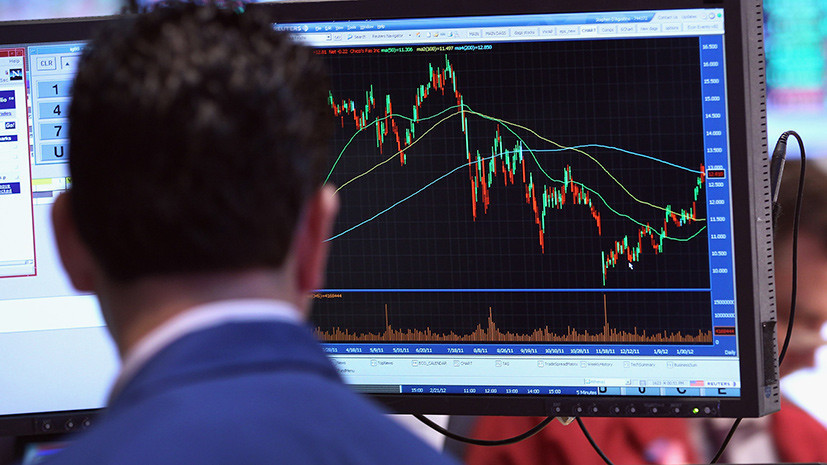In Monday's trading, the key stock market indicators in Western Europe are showing a steady decline of more than 2%. The main reason for the market's weakness was investor fears over the global economic outlook amid record-high inflation data in the US.
Britain's FTSE 100 sank by 1.44% to 7211.8 points, France's CAC 40 dropped by 2.18% to 6052.24 points and Germany's DAX lost 1.84% to settle at 13507.5 points.
Thus, on Monday, Britain's FTSE 100 and Germany's DAX hit lows at the beginning of May. The French indicator dropped to its lowest level of March this year.

Notably, the current bearish sentiment on European exchanges followed that of Asia-Pacific stock markets. On Monday, Japan's Nikkei 225, South Korea's KOSPI and Hong Kong's Hang Seng lost almost 3% amid market worries about the highest annual increase in US inflation since the winter of 1981.
In addition, US stock indices also showed a sharp decline in trading on Friday, with the high-tech index NASDAQ Composite at the top of the fall list, dropping 3.52% to 11340.02 points.
Reasons for European stock exchanges collapse
The key pressure on the European stock market on Monday is the reduction in investors' appetite for risky assets amid the US inflation data released on Friday.
According to the US Federal Bureau of Labour Statistics, annual inflation in the country rose to 8.6% in May, the worst rate for the past 40 years, since the winter of 1981. At the same time, so-called core inflation (a measure of inflation excluding food and energy costs) increased by 6% last month. By the way, market analysts had earlier predicted that the consumer price growth rate would remain at April's level of 8.3%.
The European Central Bank said on Thursday that the regulator could move to a tighter monetary policy. For example, the ECB confirmed its willingness to increase its key rate by 25 basis points during the July meeting. Furthermore, the European regulator plans to raise rates again in September. The level of this increase, the ECB said, will depend on medium-term inflation forecasts.Another downward factor for the European exchanges on Monday was the weak growth statistics for the UK economy.
According to data released the day before, the UK economy slumped markedly in April. The country's GDP dropped by 0.3% as production, services and construction fell simultaneously for the first time since January last year.
The UK economy tumbled ahead of the Bank of England's meeting scheduled for next Thursday. At the end of the meeting, the British regulator is expected to increase its key rate by 0.25% for the fifth consecutive time since December 2021 after the state's inflation rate soared to a four-year high of 9% in April.
Trading results
As for the previous trading session, European stock market indicators also fell steadily on Friday on the news of an unexpected acceleration of inflation in the United States.
Britain's FTSE 100 shed by 2.12% to 7,317.52 points, France's CAC 40 dropped by 2.69% to 6,187.23 points and Germany's DAX fell 3.08% to 13761.83 points.
The British index lost 2.86%, the French one dropped by 4.6%, and the German one fell by 4.83% during the last week.
Amid record US inflation data, stock market participants are wary of further aggressive moves and tighter monetary policy from the Federal Reserve, as the central bank's decisive actions could have a negative impact on the global economy.
 English
English 
 Русский
Русский Bahasa Indonesia
Bahasa Indonesia Bahasa Malay
Bahasa Malay ไทย
ไทย Español
Español Deutsch
Deutsch Български
Български Français
Français Tiếng Việt
Tiếng Việt 中文
中文 বাংলা
বাংলা हिन्दी
हिन्दी Čeština
Čeština Українська
Українська Română
Română

